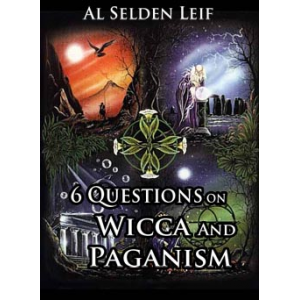
Pagan is an umbrella term which covers a number of religions and beliefs. The most prevalent are two ‘Neo-pagan’ faiths, Wiccan and Druidry. However, you do not have to belong to Neo-pagan
religion to be Pagan.
The most simple definition of Pagan is ‘country-dweller’. The word came to be associated with a belief system because country-dwellers and farmers followed the patterns of the sun, because their crops ultimately depended on it.
To put it simply, a Pagan is someone who follows the cycles of nature.
Paganism is the oldest religion known to humanity, pre-dating the
Christian religion, therefore pagans follow traditions which are as old as humanity itself!
Because individuality is stressed, there are few widespread customs. A sense of the sanctuary of the natural world, concern for the environment, and acceptance that we are socially responsible for our fellow-creatures, dictates the kind of customs which most Pagans follow.
Today, there are still misconceptions over Paganism and the many religions and beliefs which are connected to it. Here’s just to clear things up:
- Pagans are not concerned with perverting the sacred symbols, beliefs or practices of any other religions.
- Pagans do not perform sacrifices.
- Pagans do not sexually abuse children. This would be contrary to everything that Pagans hold close to their hearts. The children are their future, and a part of the ultimate divine source. Pagan children are born in love and unity. They are sacred, and treated as such.
- Pagans do not believe in, or indeed worship, the ‘Devil’. In fact Pagans do not even believe in such a concept.
Paganism is a legitimate, coherent and responsible
spiritual path to which many people are attracted. To be a Pagan in the 21st century is to hold and believe in the sacredness of all things; to respect all life; and to love and honour one’s family and friends.
Free eBooks (Can Be Downloaded):
Mourant Brock - Rome Pagan And PapalRobert Ambelain - Martinism History And DoctrineTuesday Lobsang Rampa - Wisdom Of The AncientsDonald Mackenzie - Egyptian Myth And LegendAnonymous - Pagan Stones And Gems





